The first time I encountered Taza Chocolate was in Vancouver. One of my work compadres (Jaqs) brought to work a highly coveted bar she found at an obscure little foodie place in Vancouver’s East end. It was so prized that the bar remained hidden in her desk except for rare occasions when it was needed.
That bar was the most amazing thing I’d ever tasted and the sight of it’s “stone-ground” red wrapper brought joy to my heart.
You see, I rarely get to eat chocolate because of all the extras that get added to most bars: wheat, high fructose corn syrup, dairy bits and bobs, whey, mysterious “natural flavours,” and little lecithins that never get fully identified. My least favourite addition is always calcium chlorite. I’ve never been able to understand why is calcium chlorite in food because I’ve used it to strip the paint off of swimming pool decks.
My exposure to Taza in Vancouver was just the beginning of the search for artisan chocolate. Since then there’s been Denman Island chocolate, Tcho, and Dagoba. All are good, but I’m sad to say that I’ve not seen a bar of Tazo chocolate outside of Jaq’s desk.
As such, I was pleasantly surprised to discover that Taza is a product of Boston… and they offer daily tours of their factory! This warranted a drive out to their warehouse in Somerville.
I won’t go into details of the tour because others have done it, but I will point out a few things that (in my mind) make Taza the best chocolate factory on the planet:
- The product is kosher, gluten-free, vegan, dairy-free, corn-free. One bar has only two ingredients: cacao and cane sugar. This means that almost everyone can eat it without having to worry about hidden ingredients.
- This is a bean to bar chocolate company meaning that there is no middleman between the cacao producer and the chocolate maker to take profits away from the producers. In fact, they have an ongoing relationship that frequently brings both sides of the cycle (cacao grower/chocolate maker) together.
- Everything created or used during the chocolate-making process gets a second life; whether that be compostable/recyclable packaging, extra chocolate that gets reincorporated into the process, the cacao shells (used in teas or as fertilizer), etc.
- The stones used to grind the chocolate are handmade by Alex (the founder) using traditional Mexican methods. Stone grinding gives the chocolate a unique texture that I’m rather fond of.
- There is no money-grabbing at any stage of the chocolate-making process. Everything seems fair! Even the tour is an affordable $5 per person (which likely pays for all the samples you eat along the way).
- They are open and transparent about their company and what they produce; and, they know about what happens at every stage in the process. This reads integrity to me and means they’re not hiding anything.
This is a very exciting time for the company. They are growing quickly and are in the midst of an expansion at their current location. This is good news to me because it (hopefully) means that I will start seeing Taza bars in Calgary.
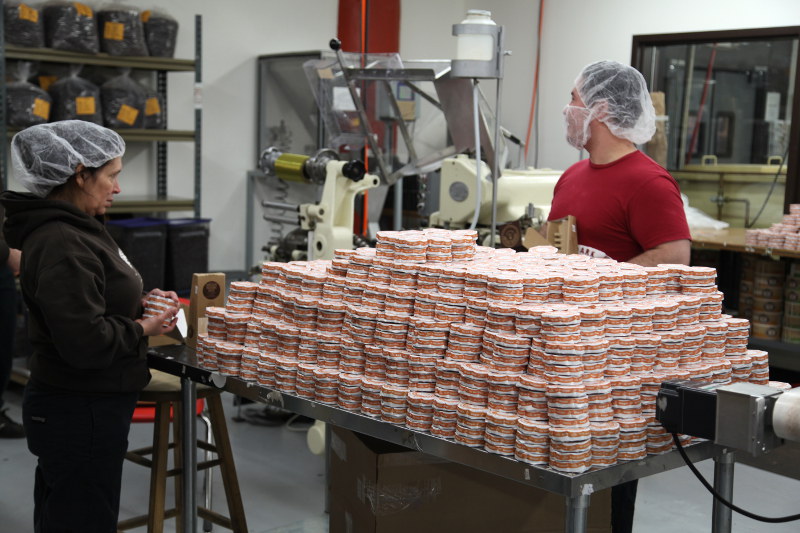
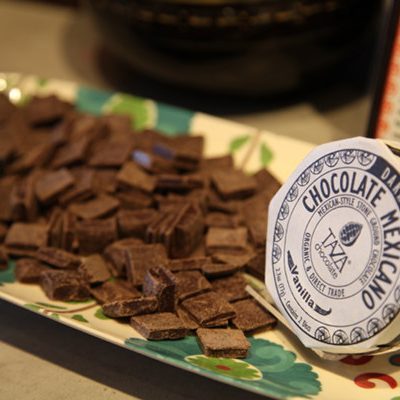
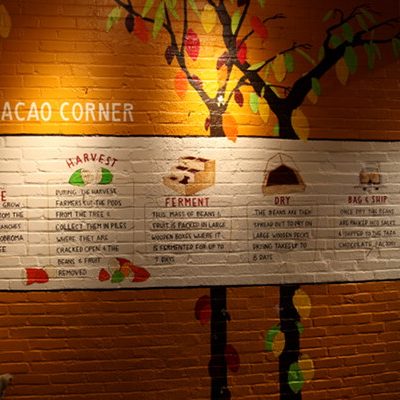
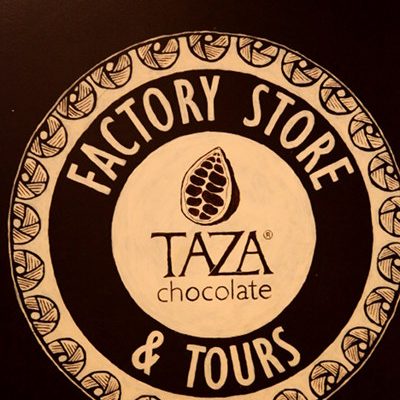
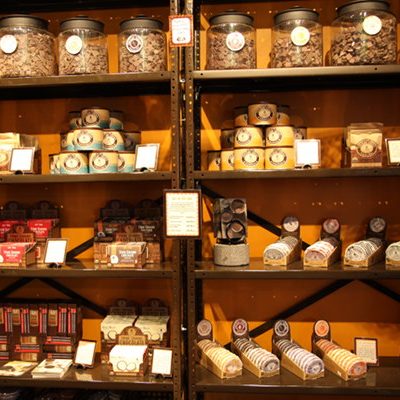
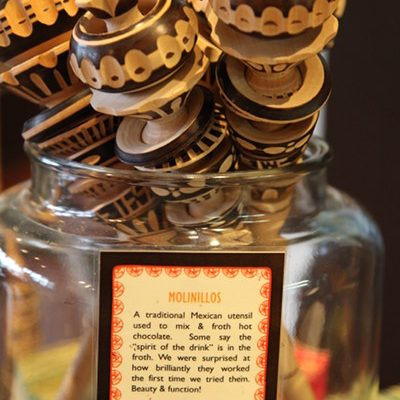
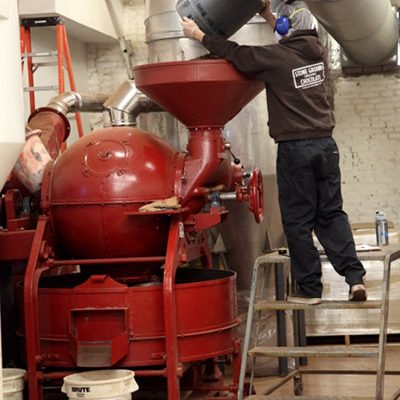
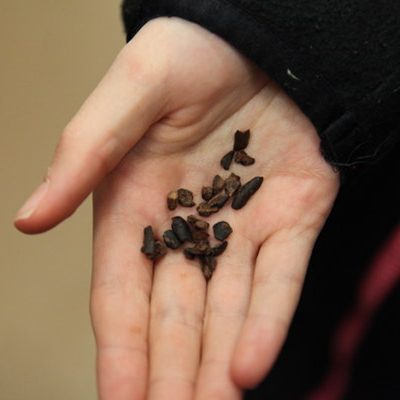
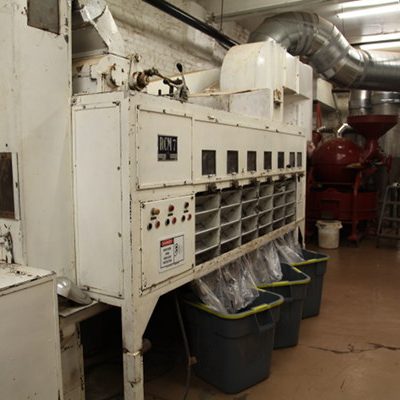
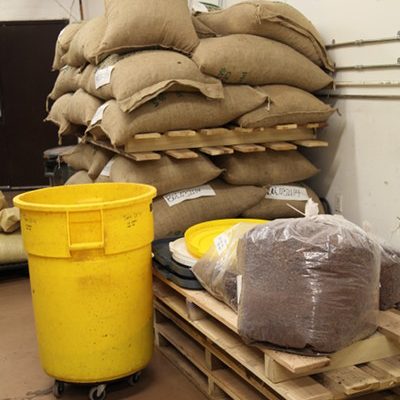
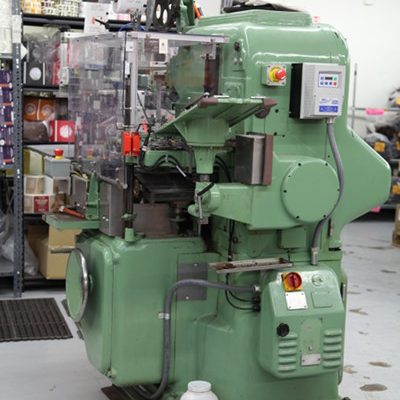
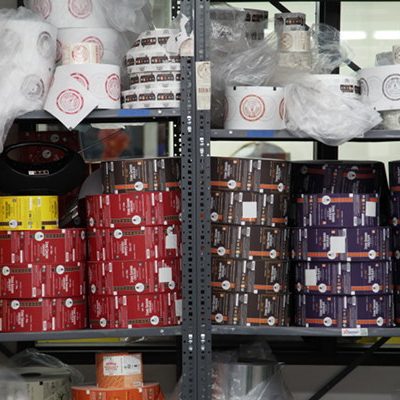
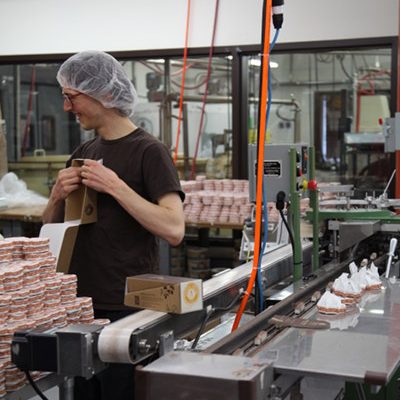
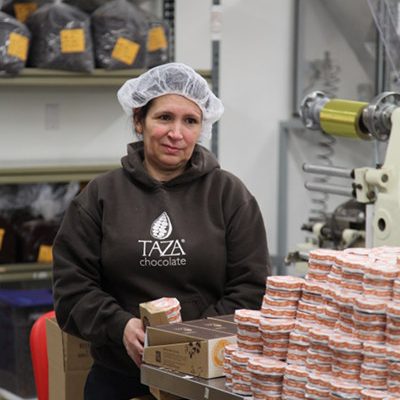
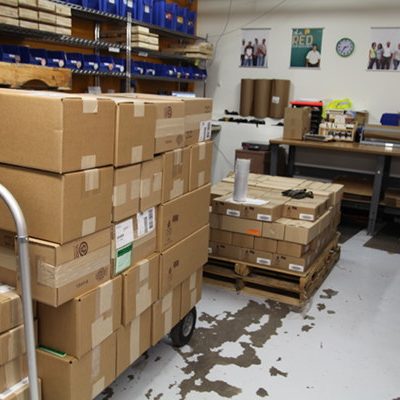
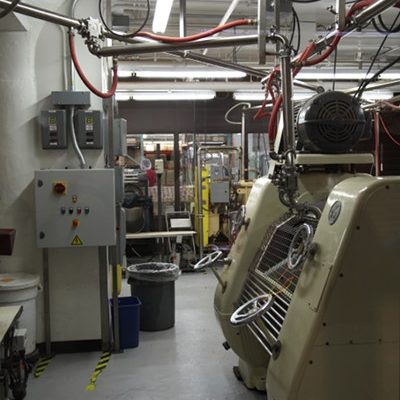
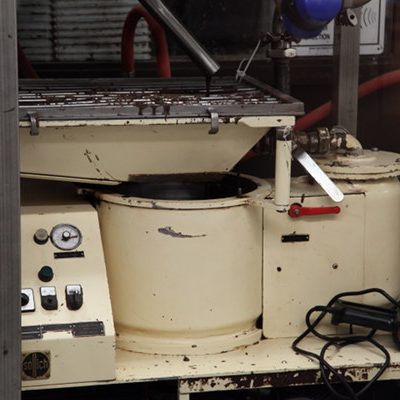
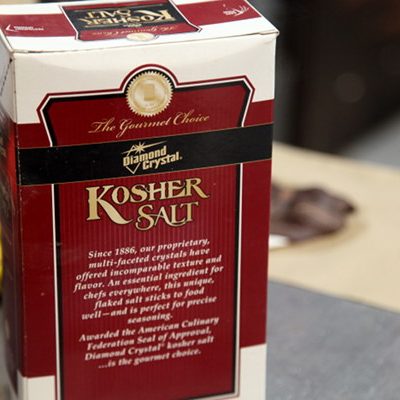
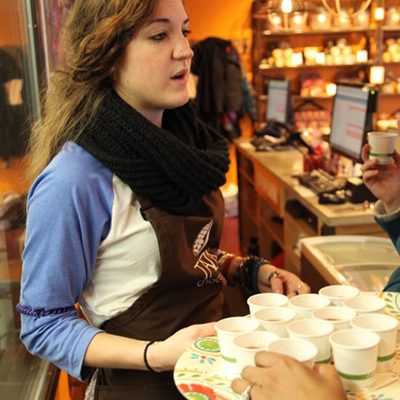
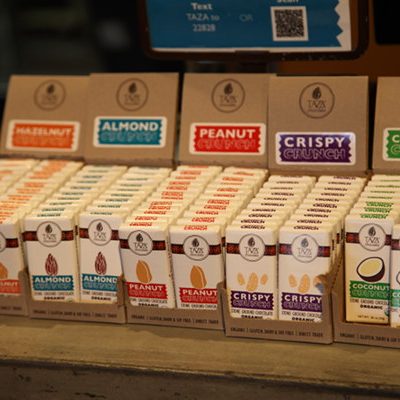
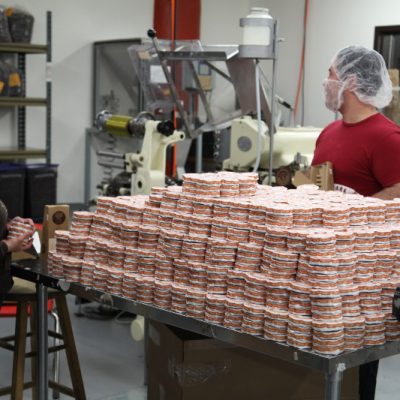
0 comments on “Inside Taza Chocolate in Boston”Add yours →